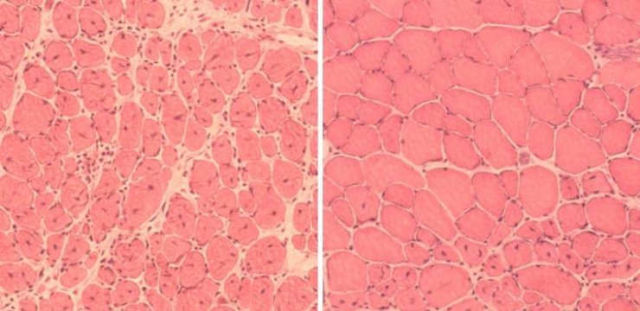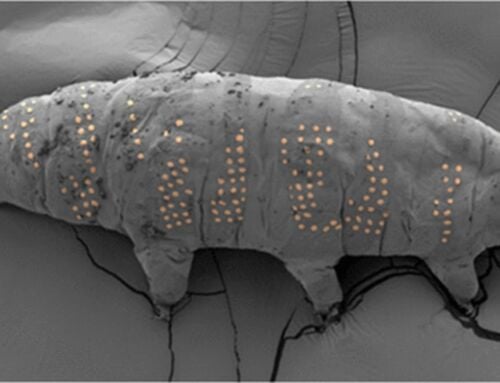Scientists created a cellular reprogramming method that slows aging in mice.
Scientists through systemic cellular reprogramming, managed to roll back time for live mice.
By reprogramming the chemical marks in the genome, known as epigenetic marks, reduced many signs of aging in the mice. On average, they extended their lifespan from 18 weeks to 24.
The above image shows the discovery by researchers that induction of partial cellular reprogramming improved muscle regeneration in aged mice. (Left) Impaired muscle repair in aged mice; (Right) Improved muscle regeneration in aged mice subjected to reprogramming. Credit: Courtesy of Juan Carlos Izpisua Belmonte Lab /Salk Institute
Lead investigator Juan Carlos Izpisua Belmonte, a professor in the Salk Institute of Biological Science‘s Gene Expression Laboratory, explains:
“We did not correct the mutation that causes premature aging in these mice. We altered aging by changing the epigenome, suggesting that aging is a plastic process.”
Co-first author Pradeep Reddy, said:
“We were surprised and excited to see that we were able to prolong the lifespan by in vivo reprogramming.”
via sciencealert






Leave A Comment